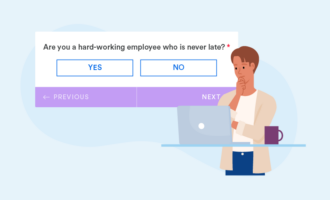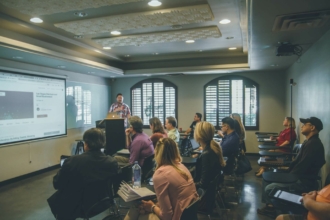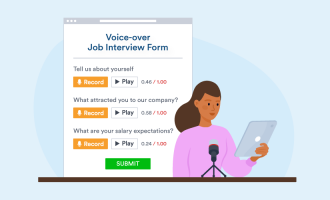Corporations use focus groups to study and sell everything, from children’s toys to summer blockbusters.
Political parties use them to perfect their campaign messaging, U.S. government agencies rely on them to determine public reaction to changes in policy, and law firms use them to predict a jury’s response to certain arguments, according to Vox.
Most products you purchase have, in some ways, resulted from the insight of focus groups.
But what are focus groups? This fundamental component of market research can be described simply as a small-group discussion typically guided by a trained leader. Organizations use them to learn about opinions regarding a specific product or topic and use this information to guide future action.
In addition to the more corporate examples, you can use focus groups for grassroots causes.
Parents of preschool-aged children may meet to discuss their views on the local childcare options available and how they can be improved. A focus group of senior citizens may discuss their thoughts on the new senior center and what programs they’d like to see there.
Regardless of the specifics, in most cases, a focus group can yield information in a short period of time that can help with future decisions.
What sets a focus group apart from other gatherings?
Focus groups are structured and directed, intended to hear the opinions of everyone involved. This is why they’re good for quickly gathering information from a target audience. They vary from other group gatherings — like community meetings — based on these criteria:
- The group discusses a specific, focused topic.
- A trained leader or facilitator is responsible for moving the discussion forward.
- The composition of the group is carefully planned, and participants are encouraged to share their thoughts freely.
Why use a focus group?
Focus groups are an alternative way to obtain information from consumers, rather than using a survey or a one-on-one interview. Members of the focus group can interact with one another and influence each other during the open discussion of ideas.
According to The Balance, as opposed to frequently used quantitative surveys, focus groups are a bit less scientific and can have advantages over other methods of market research:
- They are more flexible.
- Decision-makers have the opportunity to talk to their customers directly.
- They provide valuable and unique insight into a customer’s understanding of a brand, product, or service.
Capturing what a person is feeling or thinking allows for more depth, nuance, and variety than a typical needs assessment survey. Qualitative research can add more insight to your data.
To conduct a successful focus group, remember that the purpose isn’t to arrive at a consensus or agreement among participants. This isn’t a time to come up with a plan of action but instead to focus on the feelings, perceptions, and thoughts of those in your focus group — who are representing a broader population. Take into account what they’re saying about a service, product, or solution.
When should you hold a focus group?
- When you’re considering introducing a new product, program, or service
- When you want to ask questions that can’t be easily answered on a written survey
- When you want to supplement the information you received from written surveys
- When you have the time, resources, and knowledge necessary to hold a focus group
How do you run a focus group?
First, let’s look at what makes a successful focus group.
The quality of a focus group’s outcome depends entirely on the conversation, so make sure to provide an environment that fosters open discussion. That could mean removing any distractions in the room (like TVs, art, and coffee makers). Also, understand that participants are going to be more willing to partake if the line of questioning has a logical progression that mimics a natural exchange.
Ensuring that participants are all contributing equally is also the best way to garner a positive outcome. Participants who are genuinely engaged and moderators who are both skilled and prepared produce well-rounded results.
Before you begin
- Recheck your goals. What do you hope to learn? Why are you doing this?
- Find a good leader. They determine the success of your group. Make sure that they have experience facilitating focus groups, know something about the topic, can relate to the focus group participants, and understand your goals.
- Find someone to record what people are saying, either through writing or audio (but make sure to get approval for this beforehand).
- Select a representative group. Use sampling methods to determine the best way to do this.
- Consider incentives for participants.
- Decide on particulars — when, where, how long, etc.
- Prepare your questions in advance.
When conducting a focus group
The leader will typically take charge and guide the sequence of events. This begins with thanking participants for coming, clearly stating the goals for the meeting, and laying out the ground rules.
Your opening question is the first impression and sets the tone for the remainder of the meeting, but it’s up to you to decide if it should be broader, like “What are your general thoughts about X?” or something more specific to steer the conversation in a certain direction.
Some common techniques used in focus groups are
- Summarizing what you heard to see if the group agrees
- Asking if anyone has comments regarding a certain question
- Asking follow-up questions
- Looking around the room often and making brief eye contact with those who haven’t spoken
After the focus group
Look at your notes or audio recording to find patterns, common themes, and conclusions. Make sure to offer feedback to the participants, so they can see the takeaway that they contributed to.
Put your results into action. Whether that means sharing your findings with your team, releasing a new product, or going back to the drawing board — you should have something to act on.
































Send Comment: